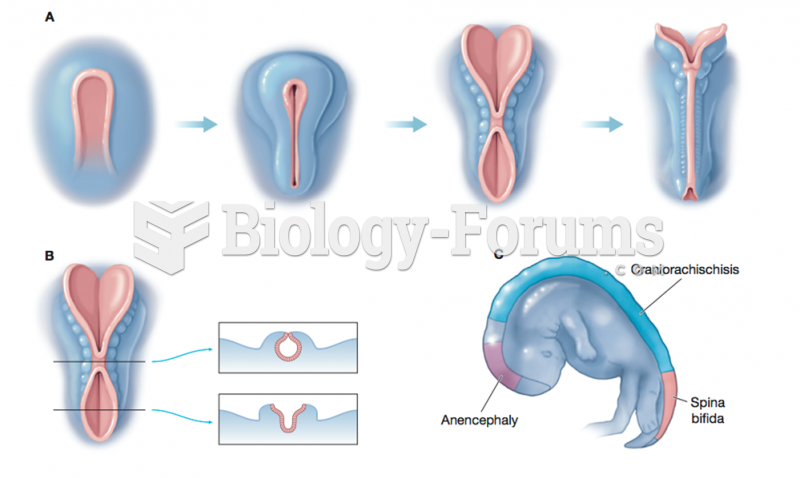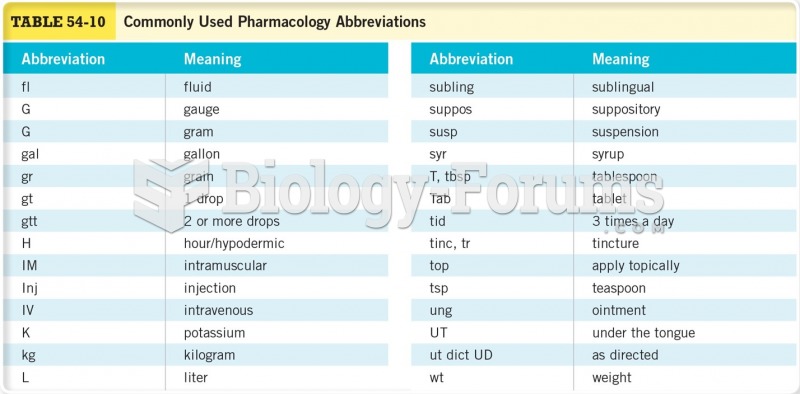|
|
|
Illness; diuretics; laxative abuse; hot weather; exercise; sweating; caffeine; alcoholic beverages; starvation diets; inadequate carbohydrate consumption; and diets high in protein, salt, or fiber can cause people to become dehydrated.
Asthma attacks and symptoms usually get started by specific triggers (such as viruses, allergies, gases, and air particles). You should talk to your doctor about these triggers and find ways to avoid or get rid of them.
In 2006, a generic antinausea drug named ondansetron was approved. It is used to stop nausea and vomiting associated with surgery, chemotherapy, and radiation therapy.
Amphetamine poisoning can cause intravascular coagulation, circulatory collapse, rhabdomyolysis, ischemic colitis, acute psychosis, hyperthermia, respiratory distress syndrome, and pericarditis.
Blood is approximately twice as thick as water because of the cells and other components found in it.
 Killer whales, like this one spotted near Alaska, commonly breach, often lifting their entire bodies
Killer whales, like this one spotted near Alaska, commonly breach, often lifting their entire bodies
 This young boy with muscular dystrophy needs to receive tube feedings and home nursing care. He atte
This young boy with muscular dystrophy needs to receive tube feedings and home nursing care. He atte





